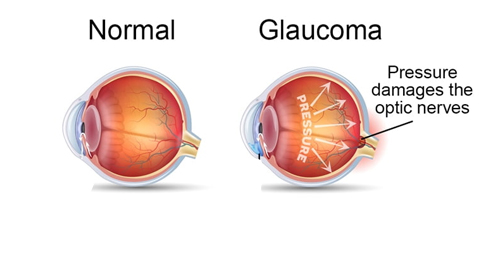- Clinic:
- 0733 945 717
- 0739 434 212

How to cope with unusual cravings in pregnancy
May 22, 2023
5 questions you must always ask your doctor
May 26, 2023What is glaucoma?

Glaucoma is a disease of the major nerve of vision, called the optic nerve. The optic nerve receives light-generated nerve impulses from the retina and transmits these to the brain, where we recognize those electrical signals as vision.
Glaucoma is characterized by a particular pattern of progressive damage to the optic nerve that generally begins with a subtle loss of side vision (peripheral vision). If glaucoma is not diagnosed and treated, it can progress to loss of central vision and blindness.
Glaucoma is usually, but not always, associated with elevated pressure in the eye (intraocular pressure). Generally, it is this elevated eye pressure that leads to damage of the eye (optic) nerve. In some cases, glaucoma may occur in the presence of normal eye pressure. This form of glaucoma is believed to be caused by poor regulation of blood flow to the optic nerve.
How common is glaucoma?
Worldwide, glaucoma is the leading cause of irreversible blindness. In fact, as many as 6 million individuals are blind in both eyes from this disease. In Kenya according to one estimate, over 500,000 people have glaucoma. As many as half of the individuals with glaucoma, however, may not know that they have the disease. The reason they are unaware is that glaucoma initially causes no symptoms, and the subsequent loss of side vision (peripheral vision) is usually not recognized.
Your risk for glaucoma rises after age 40. Race is also a factor. Blacks are more likely than whites to get the disease. You are also at risk if you have diabetes or if a close family member has had glaucoma.
What causes glaucoma?
Damage to the optic nerve is often caused by increased pressure in the eye (intraocular pressure). This can happen when extra fluid builds up in the eye, such as when the eye makes too much fluid or does not drain well. But some cases of glaucoma aren't caused by increased pressure. In these cases, the cause may not be found.
You can get glaucoma after an eye injury, after eye surgery, or because of an eye tumor. Some medicines (corticosteroids) that are used to treat other diseases may cause glaucoma.
What are the symptoms?
The commonest symptom you are likely to notice is loss of vision. You may not notice this until it is serious. That’s because, at first, the eye that is not affected makes up for the loss. Side vision is often lost before central vision.
How is glaucoma diagnosed?
Your doctor will ask questions about your symptoms and do a physical exam. If your doctor thinks you have glaucoma, you will be sent to an ophthalmologist (eye doctor) for more tests. This may take more than one visit.
How is it treated?
Glaucoma is usually treated with medicine such as eyedrops. Be sure to follow a daily schedule for your eyedrops so that they work the way they should. You will likely need to take medicine for the rest of your life. You may also need laser treatment or surgery.
Take a fertility test today
